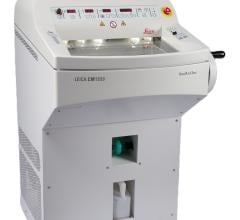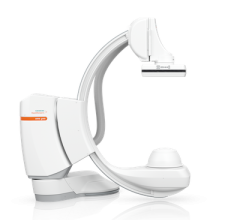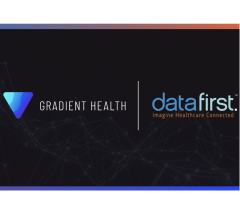
March 18, 2009 - The success of Massachusetts hospitals and physicians to incorporate information technology (IT) into healthcare demonstrates the importance of incentives, according to two studies conducted by CSC and sponsored by Blue Cross Blue Shield of Massachusetts.
The studies, “Adoption of Advanced Clinical Systems in Massachusetts Hospitals” and “Adoption of Electronic Health Record Capabilities in Massachusetts Physician Practices,” examine the progress Massachusetts hospitals and physician practices have made in implementing advanced clinical IT systems. Analysis includes areas where the state leads the nation and next steps toward improving patient care through electronic access to information.
According to the reports, adoption of computerized physician order entry (CPOE) among hospitals in Massachusetts is nearly double the national average, and the use of e-prescribing is the highest in the nation. In addition, more than one-third of ambulatory physicians are using at least basic electronic health record (EHR) capabilities, a rate more than two times the national average. The studies show these statistics are the direct result of incentives. These include incentives from health plans, a campaign by the Massachusetts Technology Collaborative to educate hospitals on the value of new technologies and a state-mandated deadline to have CPOE implementation in all hospitals within four years.
Some health plans wrote CPOE implementation incentives into hospital contracts; others provided free e-prescribing software to physicians and offered incentives to encourage continued usage. Partners Community Healthcare Inc., a network of 1,000 primary care providers and 3,500 specialists, set a deadline for use of an EHR system as a condition for network participation.
“This data reveals that incentives are making a dramatic difference,” said Deward Watts, president of CSC’s global healthcare sector. “While Massachusetts has a distinct advantage in terms of support from the state government and stakeholder groups, this successful model can be replicated nationwide to create a healthcare infrastructure that significantly improves patient outcomes.”
“The research clearly shows the progress that has been made in the state to increase adoption of clinical information technology,” said Greg LeGrow, director of e-health innovation for Blue Cross Blue Shield of Massachusetts. “We still have a ways to go, but the results are encouraging and demonstrate the impact aligned efforts can have to further the use of technology that improves the quality and affordability of care delivered.”
Hospitals at varying levels of tech adoption
The hospital study (www.csc.com/hospital_study_09) gauges adoption and meaningful use of advanced clinical systems, which include electronic CPOE with clinical decision support, and electronic physician and nursing documentation systems.
The survey revealed that 18 percent of hospital CIOs and executives who responded claimed CPOE is “in routine use,” while another 33 percent reported that an implementation is in progress, and 20 percent reported that it has been budgeted but not yet implemented.
Massachusetts hospitals are also in various stages of implementing “next generation” clinical systems. One-third of hospitals report using IT for infection management tracking. The state is operating near the national average in electronic medication reconciliation with 57 percent of hospitals accomplishing at least some portion of this activity electronically.
Basic EHRs in use by nearly half of Massachusetts doctors
The physician study examines physicians’ use of basic and advanced EHR capabilities.
Of those surveyed, 36 percent said they use all “basic” EHR capabilities outlined in the survey, including electronic medication and problem lists, and functionality to order prescriptions electronically. Five percent claimed adoption of all “advanced” EHR capabilities, including disease management and health maintenance functionality.
Close to three-fourths of physicians surveyed said they order prescriptions electronically for at least some of their patients, while almost two-thirds regularly transmit prescriptions electronically to pharmacies via fax or computer. The survey shows that these levels reflect efforts by payers to provide physicians with e-prescribing software.
The surveys were conducted in the summer of 2008. They include responses from 519 physicians, or roughly 3 percent of the physician population of Massachusetts, and 27 CIOs and hospital executives representing 43 facilities, or approximately 60 percent of the hospitals in the state.
Massachusetts has a heritage of medical innovation that includes development of EHR systems and institution of universal healthcare coverage. Most health plans that serve the state are regional and there is a history of collaboration between providers and payers. For example, the New England Healthcare Electronic Data Interchange (EDI) Network has been exchanging data between health plans and providers since 1998.
CSC’s Global Healthcare Sector, which serves healthcare providers, health plans, pharmaceutical and medical device manufacturers, and allied industries around the world, is a global leader in transforming the healthcare industry through the effective use of information to improve healthcare outcomes, decision-making and operating efficiency.
Fore more information: www.bluecrossma.com, www.csc.com, www.csc.com/hospital_study_09


 February 11, 2026
February 11, 2026 









